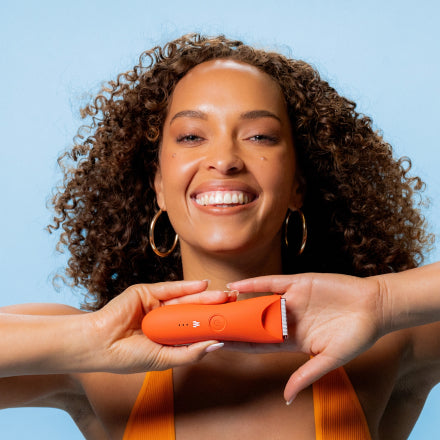It’s easy to feel like you’re the only one not living an exciting, sex-filled life. But the reality is our perceptions of sexual frequency are skewed and wildly inaccurate: most of us believe everyone else is having much more sex than they are.
Time for a reality check.
How often a couple has sex is based on many different factors. How old you are, for starters. The younger you are, the more sex you have; the reverse is also true. This isn’t surprising: our hormones and energy levels drop as we age. What you might not realise is how quickly this happens.
Men and women in their mid-20s to mid-30s have sex an average of eight to nine times a month. Two years in, this drops to six times a month. Our peak frequency drops from a very young age.
Another crucial factor affecting frequency is how long you’ve been together. One reputable study found couples have sex 146 times per year in their first year together. This drops to 86 times in the second year.
How good the sex is when you have it, what your natural ‘resting’ sex drives are, what else is happening in your lives – all these things impact desire. Gender also counts. It’s true that women go off sex quicker than men – mostly because they’re bored by the sex on offer, which tends to be based around intercourse (and most women don’t orgasm from penetration alone).
There is no ‘norm’. Find the frequency and rhythm that works for the both of you. If what you're doing makes you and your partner happy, it's working!
Don’t just ‘find your normal’ with frequency, get into the habit of questioning everything you know about sex. Most of it simply isn’t true.
If a man isn’t hard, he isn’t aroused. If a woman isn’t ‘wet’, she isn’t turned on. Both are false. So many things affect how your genitals behave that have nothing to do with arousal. How hydrated we are, how much sleep we’ve had, what happened in the previous sex session, what medication we’re on, how much we’ve had to drink, what drugs (prescription and recreational) we’ve taken. The list is endless.
Sex doesn’t mean intercourse. Any sexual, erotic connection counts as sex. Intercourse might be his main event but it’s often not hers. Bite-size, unpredictable sex treats – kissing only, oral sex only - are infinitely more exciting than sex that follows a formula…
Sex also doesn’t have a beginning, middle and end. Move away from the foreplay then intercourse then orgasm equation and your sex life will dramatically improve. All sex sessions don’t need to end in orgasm and all sex sessions don’t have to include intercourse.











